Last updated on April 21, 2024
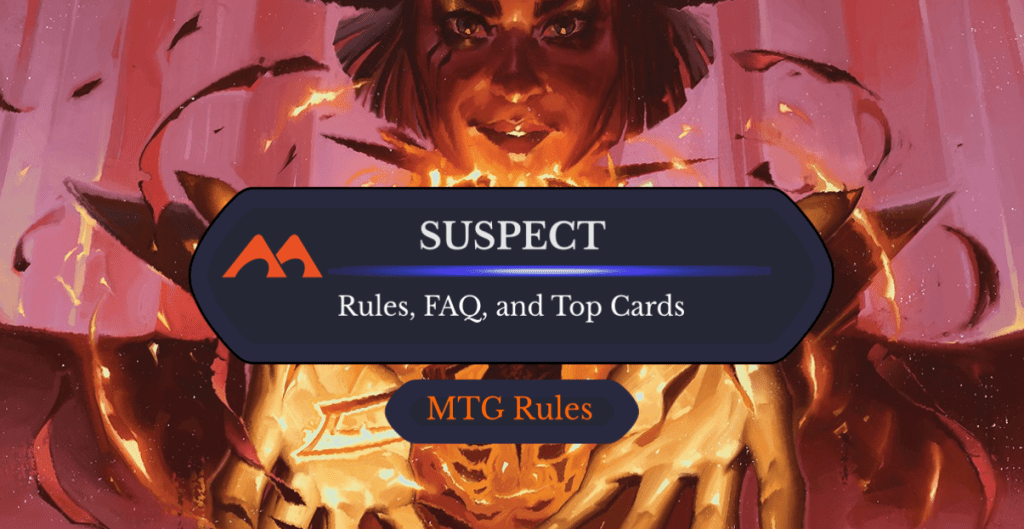
Convenient Target | Illustration by Gaboleps
Suspect is a mechanic introduced in the Murders at Karlov Manor Magic set. Like any good murder mystery, it seems straightforward at first glance…
… but when you get digging, there's a bit more than meets the eye. A keyword action; a game term that looks like a keyword ability but isn’t; a real keyword ability hiding underneath…
… quite the thickening plot, once you start looking! So let's see who's behind all this as we discover what suspect and suspected means in MTG!
How Does Suspect Work?
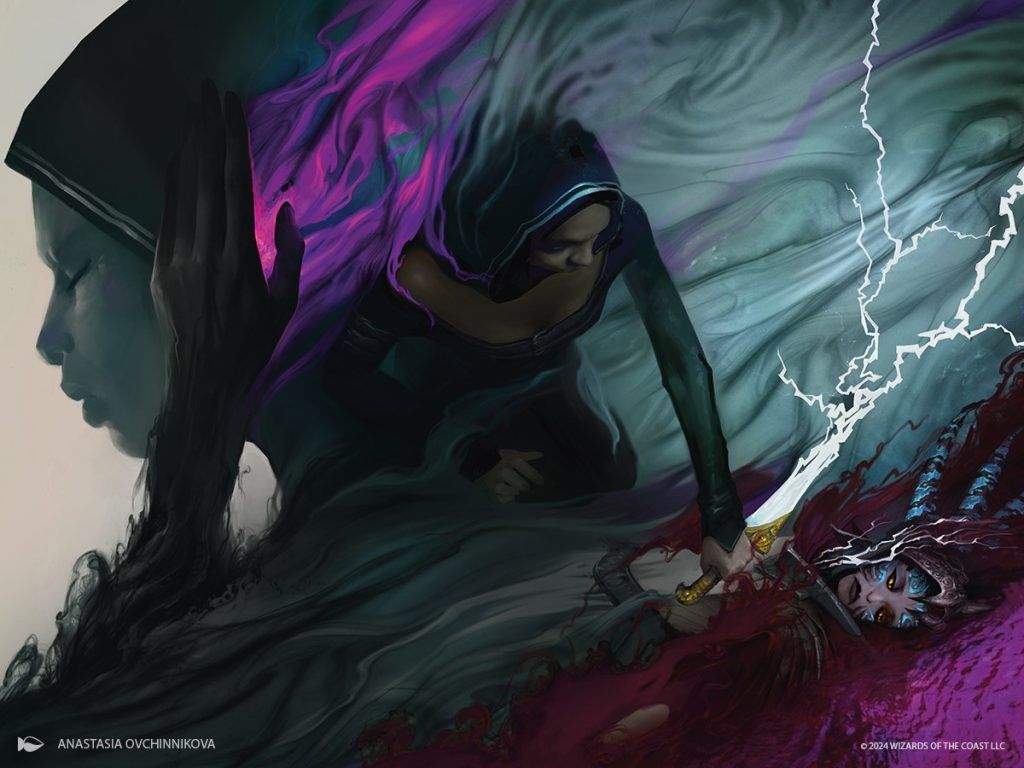
It Doesn't Add Up | Illustration by Anastasia Ovchinnikova
Suspect is a keyword action; if we go by the book, it's as simple as they come: When you suspect a creature, it becomes suspected.
And that's about it. That's all suspect does.
Suspected, on the other hand, is a bit more complicated. It's what's called a “designation”: It confers certain properties to the card, but it's not itself an ability.
A suspected creature gains menace, and also gains “this creature can't block”. A creature remains suspected until it leaves the battlefield or until an effect removes the “suspected” status.
Furthermore, if a suspected creature turns into something else and stops being a creature, it's still suspected.
Suspicion is hard to shake off on Ravnica!
The History of Suspectin MTG
Suspect and suspected were introduced in Murders at Karlov Manor in February 2024, distributed across the MKM Standard set, the Murder at Karlov Manor Commander precons, and the Ravnica: Clue Edition game.
“We spent time in exploratory design figuring out the words that best embodied the murder mystery genre,” wrote MTG head designer Mark Rosewater in an article describing how they came up with Murders at Karlov Manor‘s mechanics. “And then we spent time trying to find mechanics that matched the word that allowed us to write the phrases and sentences that felt the most resonant. Most of the characters in a murder mystery, if they aren't the victim or detective, are suspects. This felt like it had a lot more potential to be mechanically relevant.”
The MTG designers tried a lot of different ideas, until they settled on a mechanic that had both positive and negative effects. “Sometimes you'd make your opponent's creatures suspects,” Rosewaters writes, “and sometimes you'd do it to your own creatures. Since menace is aggressive, we chose something defensive. A suspect can't block. That would make you want to attack with the creature, which advances the game rather than making you sit around trying to stall. Once we tried this version of suspect, we never looked back.”
Is Suspect a Keyword Ability?
No.
“Suspect” is a keyword action that confers a designation (suspected), which in turn does provide a keyword ability (menace).
But suspect is not itself a keyword ability, and neither is “suspected”. Suspected is what’s called a designation; a tag or status you can apply to creatures.
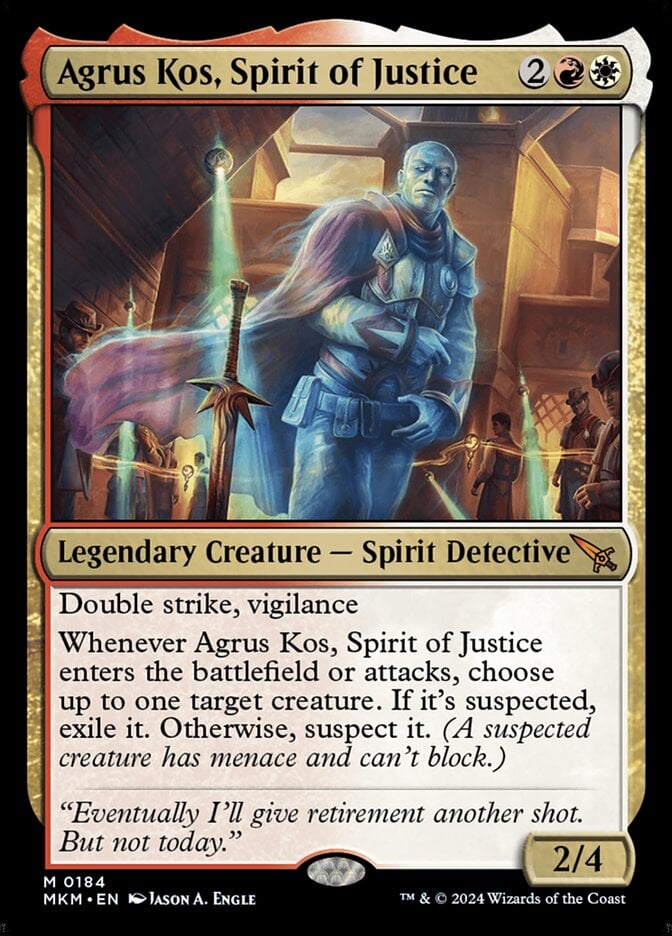
A designation has some point of contact with keyword abilities in that other cards can refer to it (like Agrus Kos, Spirit of Justice can interact with other suspected creatures). The crucial difference is that effects that remove an ability don't remove a designation.
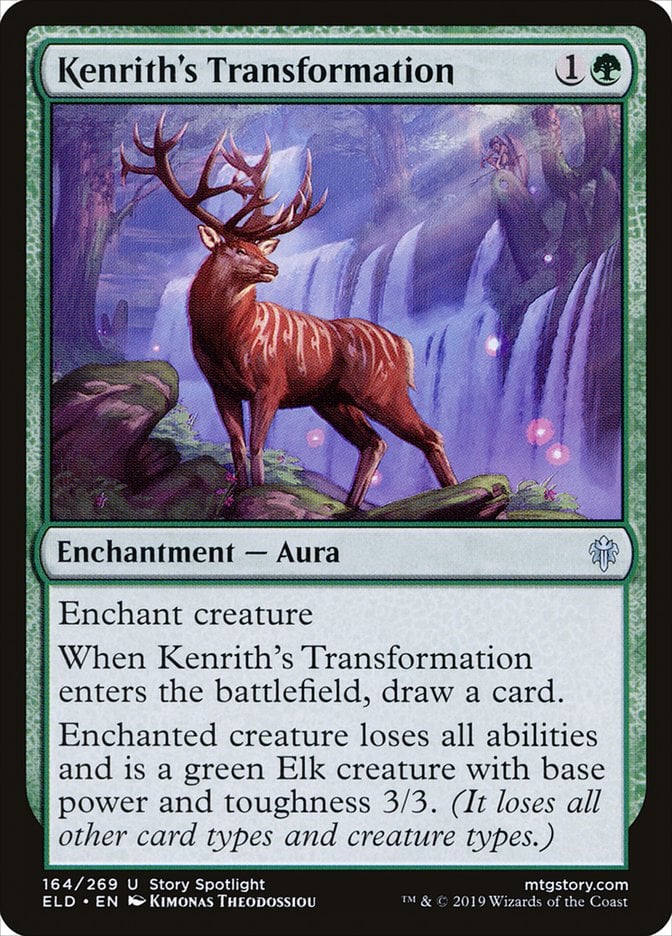
For example: If a suspected creature loses all abilities, perhaps by being enchanted with an aura like Kenrith's Transformation, then it will lose menace and “This creature can't block,” but it won't stop being suspected, because suspected isn’t an ability.
The best parallel to wrap your head around this difference is with an existing mechanic that made a return in Murders at Karlov Manor: goad and goaded. Goad is a keyword action (just like suspect), and goaded is a designation (just like suspected).
Another example is “The Ring Tempts You” mechanic from The Lord of the Rings. “The Ring Tempts You” is a keyword action (just like suspect), and it confers the Ring-bearer designation (just like suspected).
If a creature is a suspected, goaded ring-bearer, and then an effect makes the creature lose all abilities, it will still be a suspected, goaded ring-bearer because designations aren’t abilities.
Is Suspect a Keyword Action?
Yes! That's exactly what it is.
“Suspected” is a designation, though; “suspect” is the keyword action here.
What If You Flicker a Suspected Creature?
Any time you flicker a creature (“flicker” being MTG slang for spells and effects that temporarily exile a creature and then return it to the board, sometimes immediately), it re-enters the game as a brand-new object.
As such, it's no longer suspected.
Are There Suspect Counters?
Yes… but, a bit confusingly, they have nothing to do with the suspect(ed) mechanic.
Suspect counters are found on just one artifact, Investigator's Journal, originally printed in Innistrad: Crimson Vow and reprinted in Commander Masters.
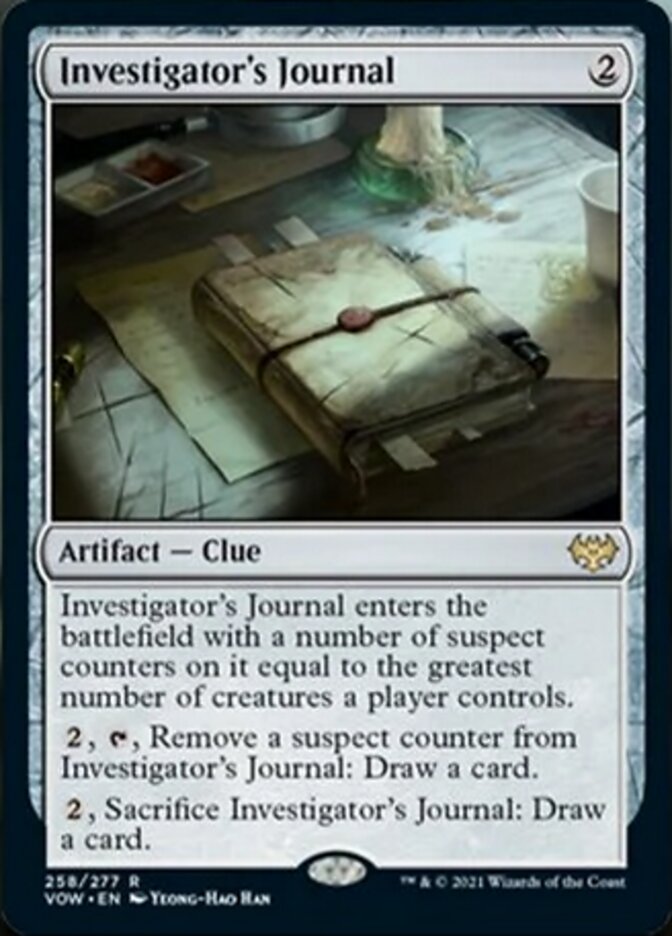
These suspect counters only work for drawing cards with the Journal; they don't make the Journal suspected.
Personal opinion/speculation: I can very much see, in coming sets, a way to mingle suspected and counters. Shifting suspicion from one creature to another (by moving counters around) would be very flavorful, just like in most crime novels the detectives go back and forth between suspects. And from what Rosewater writes, something like that was on the table in the early steps of designing MKM. But, as of this writing, no such mechanic exists.
Suspect vs. Menace
In a vacuum, suspected is a strictly worse menace on your creatures. It's literally menace, but the creature can't block.
That's the cool thing about suspect, though: Cards that let you suspect often let you choose any creature, not just yours, thus giving you the choice between giving menace (and can't block) to your creature, or can't block (and menace) to their creature.
Gallery and List of Suspect Cards
At the moment of writing, there are 23 cards that deal with Suspect:
- Incriminating Impetus
- Investigator's Journal
- Nelly Borca, Impulsive Accuser
- Hot Pursuit
- Absolving Lammasu
- Eliminate the Impossible
- Reasonable Doubt
- Agency Coroner
- Barbed Servitor
- Case of the Stashed Skeleton
- Clandestine Meddler
- It Doesn't Add Up
- Presumed Dead
- Repeat Offender
- Caught Red-Handed
- Convenient Target
- Frantic Scapegoat
- Person of Interest
- Rubblebelt Braggart
- Airtight Alibi
- Agrus Kos, Spirit of Justice
- Deadly Complication
- Rune-Brand Juggler
Best Suspect Cards
Case of the Stashed Skeleton
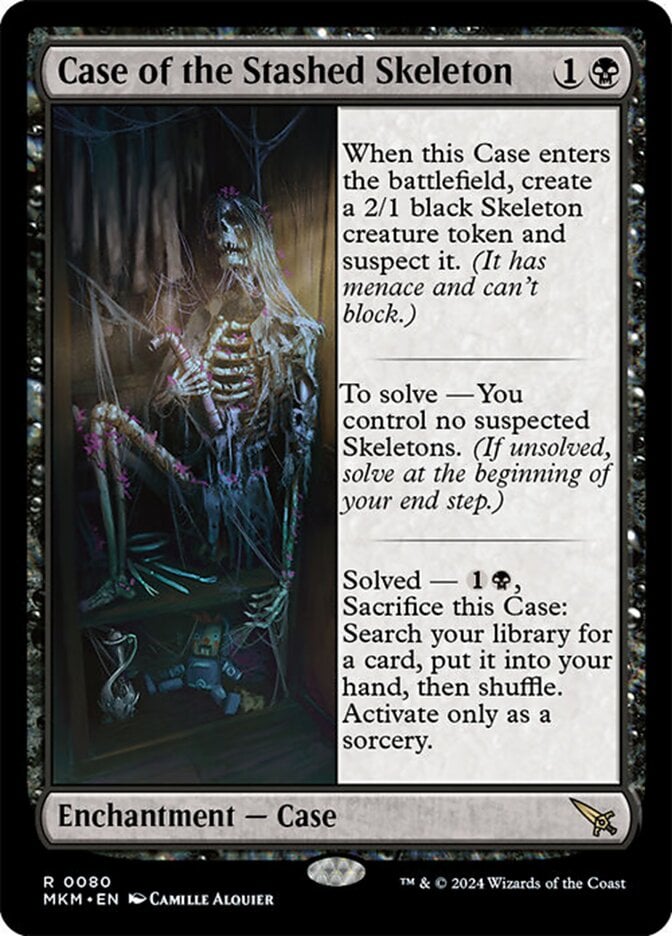
If you squint and just look at the “solved” part, Case of the Stashed Skeleton is literally Demonic Tutor, one of the juiciest cards in Magic.
Is this case worth the squeeze, though?
A couple of the current powerhouses in Standard (Gix, Yawgmoth Praetor and Raffine, Scheming Seer) love aggressive 2-drops, and Dimir wouldn't mind some cheap crew for Subterranean Schooner. I'm not entirely sure it makes this case's skeleton enough of a menace for your foe to solve Case of the Stashed Skeleton for you, though.
Commander sacrifice-heavy aristocrat decks will probably like this enchantment a bunch.
Agrus Kos, Spirit of Justice

This legendary spirit detective seems like a slam-dunk pick in your MKM Drafts or Sealed games: Agrus Kos, Spirit of Justice is a Limited bomb, and it looks like it's going to be a moderately expensive card.
If you're thinking of crafting an EDH deck that revolves around suspect, this is a juicy addition, too.
Barbed Servitor
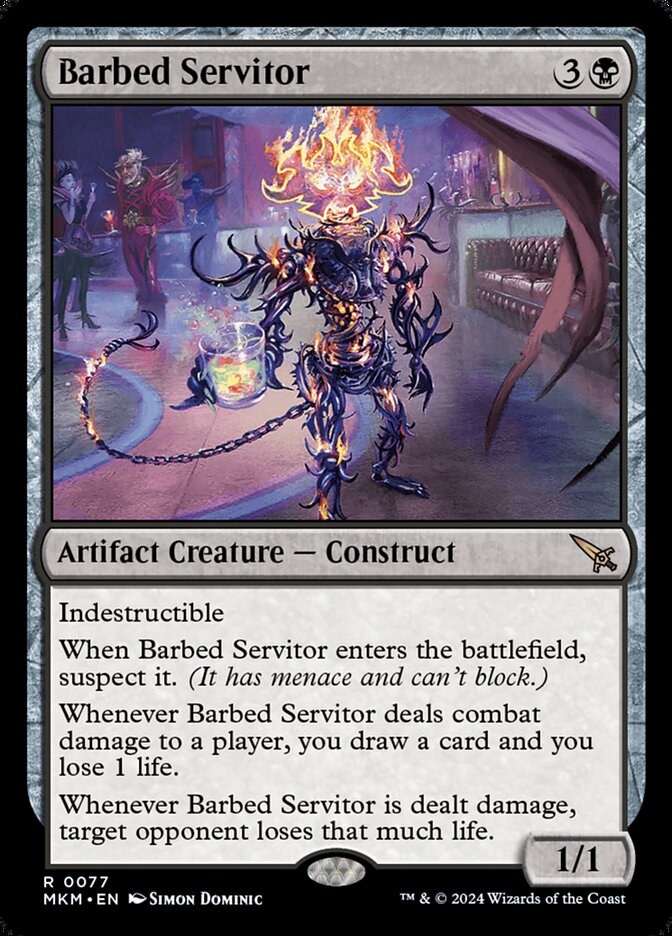
Somebody out there (probably in Commander) is gonna make a deck that burns you to ashes by dealing a gazillion damage to their own Barbed Servitor, and that's gonna be both hilarious and probably quite powerful. I don't see this one making it into 60-cards decks, though.
Convenient Target
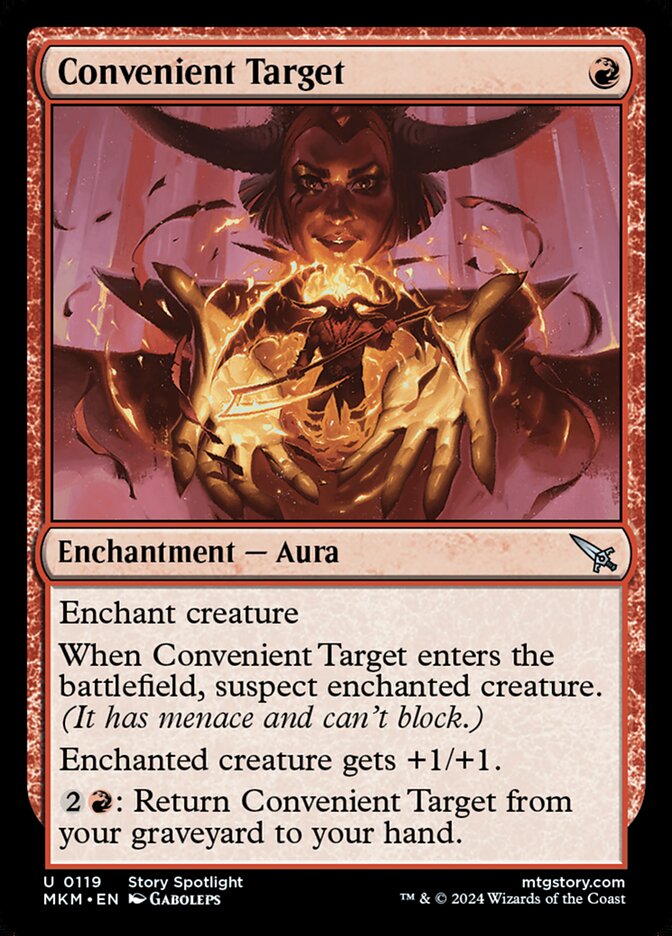
I'm grabbing Convenient Target for my red decks in MKM drafts, and I think Red Deck Wins in Standard may like a copy or two (although it being a sorcery-speed spell is a negative). Menace plus getting +1/+1 is good early on, giving “can't block” to blocker can seal the deal later on, and the threat of recurring this enchantment from the graveyard is something foes will have to keep in mind.
Reasonable Doubt
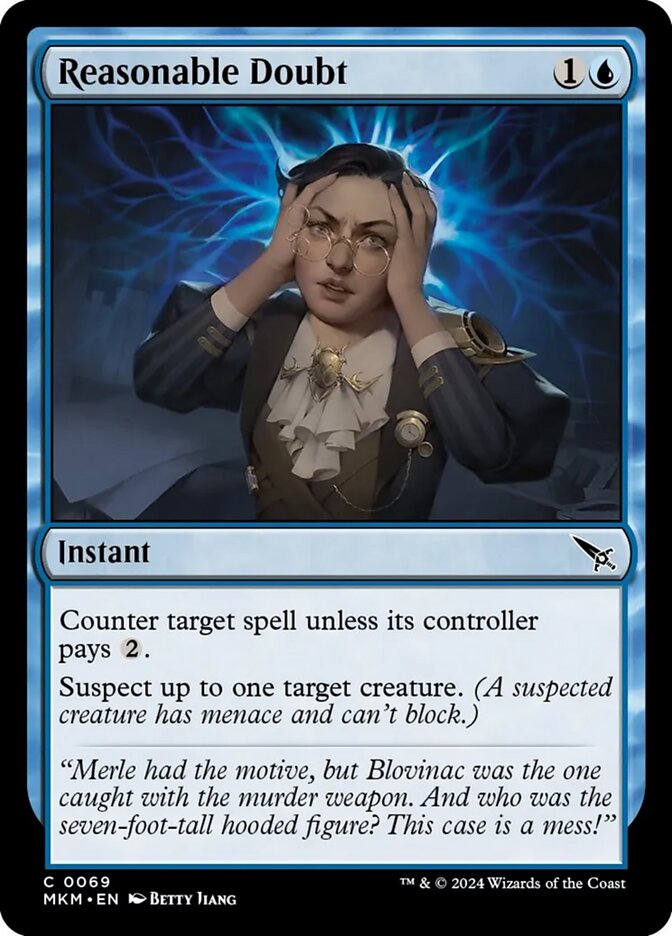
I can't pass the opportunity to say “I have Reasonable Doubts about this one” but, hey, Make Disappear (which is another murder-related card as flavor goes) is a 4x staple in some Standard decks.
And Azorius is getting several counterspelling toys in MKM, so maybe we'll see the rise of a heavy-duty control archetype?
Wrap Up
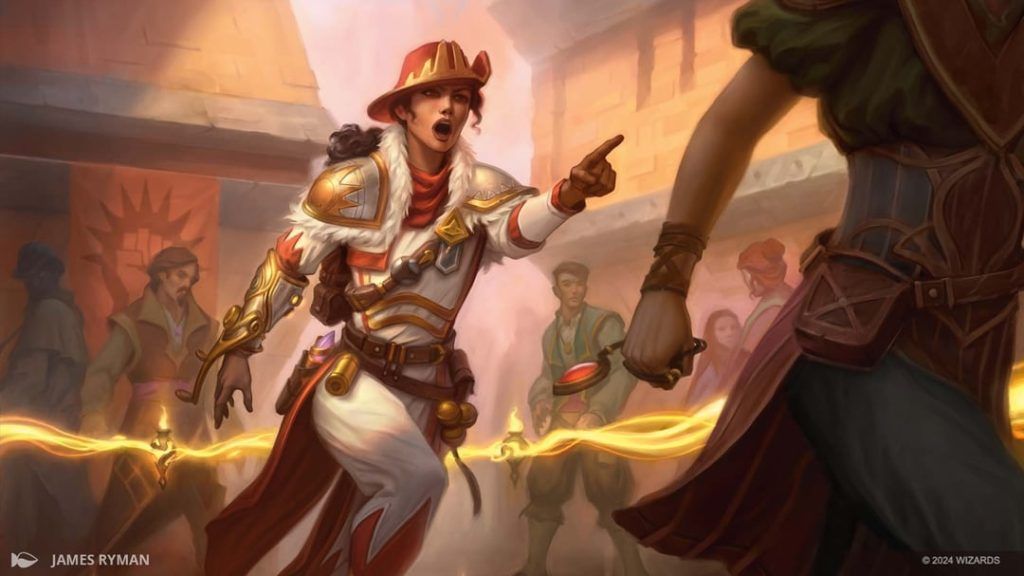
Nelly Borca, Impulsive Accuser | Illustration by James Ryman
I love flexible mechanics and, in that sense, suspect does not disappoint: It’s a designation with both a good side and a bad side, that you can choose to give to your foe's creatures.
And there are a handful of cards that care about the the mechanic in case you want to build around it; I suspect they’re a tad too few right now, but I can see WotC adding more suspect cards down the road.
I hope you've enjoyed this mechanical deep dive, and if you have comments or questions please drop a comment below, or stop by the Draftsim Discord for a chat.
And good luck out there!
Follow Draftsim for awesome articles and set updates: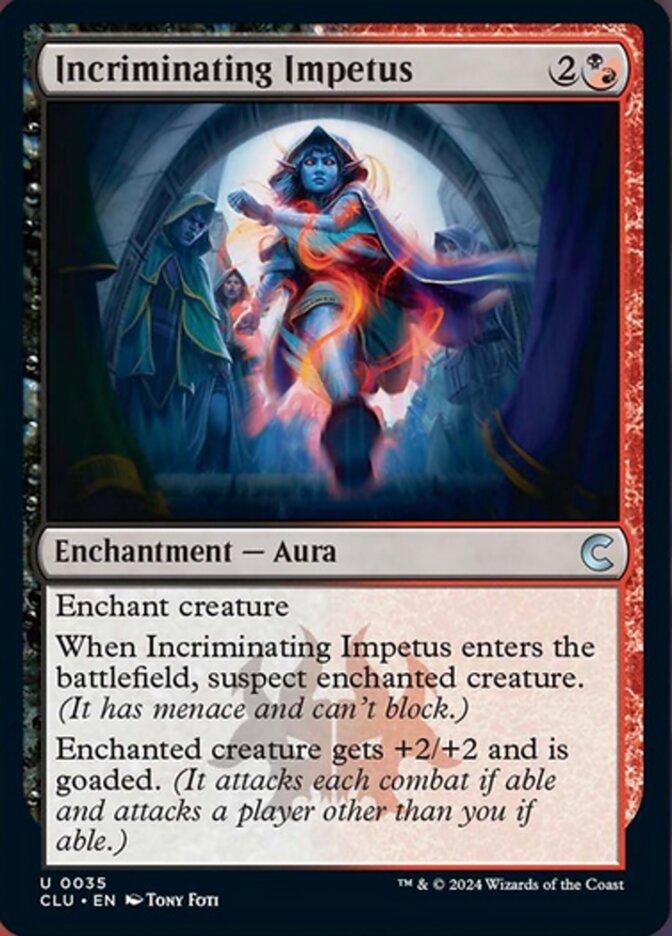
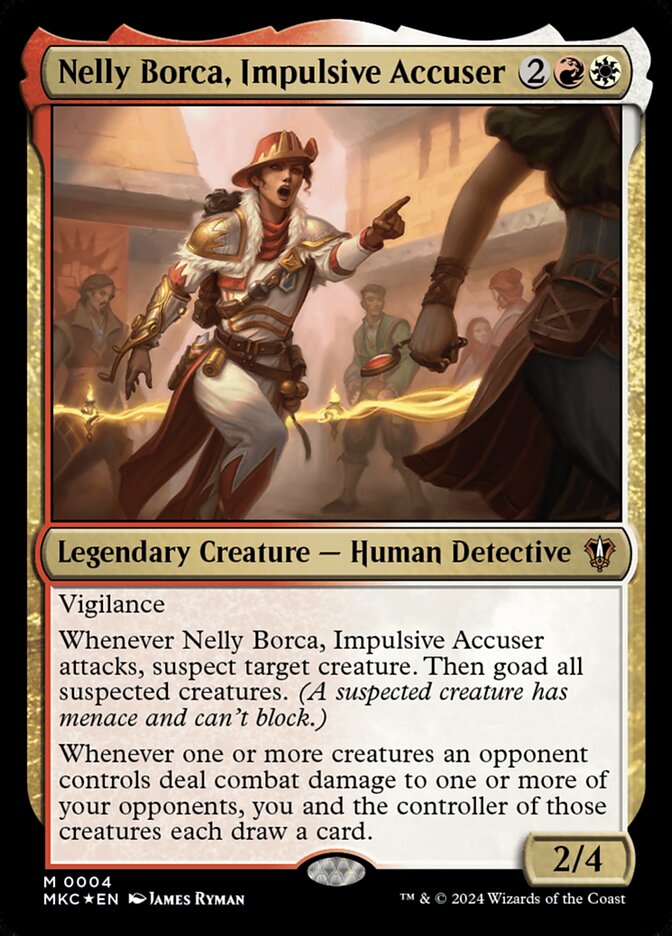
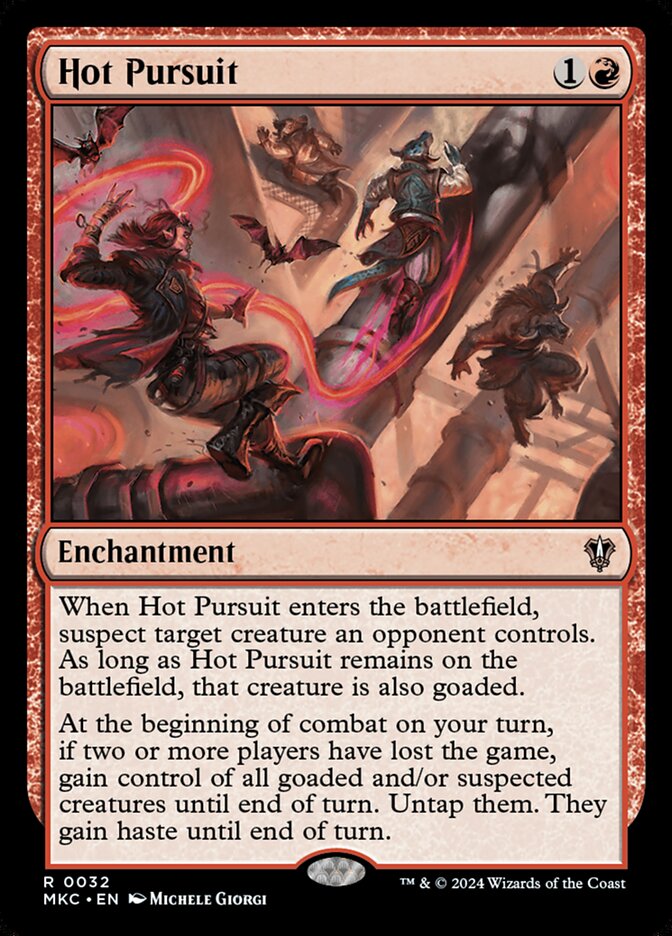
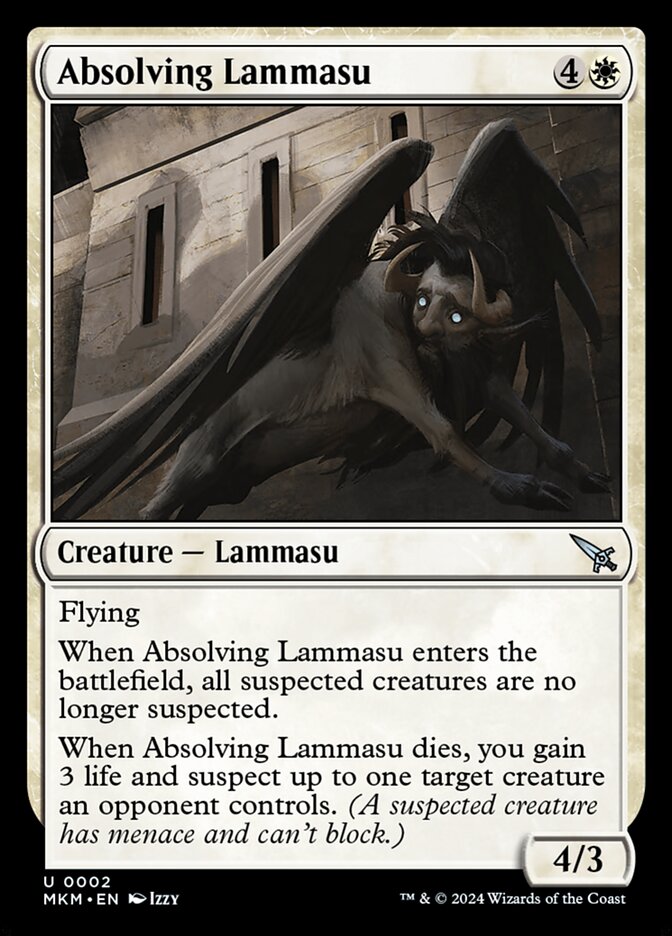
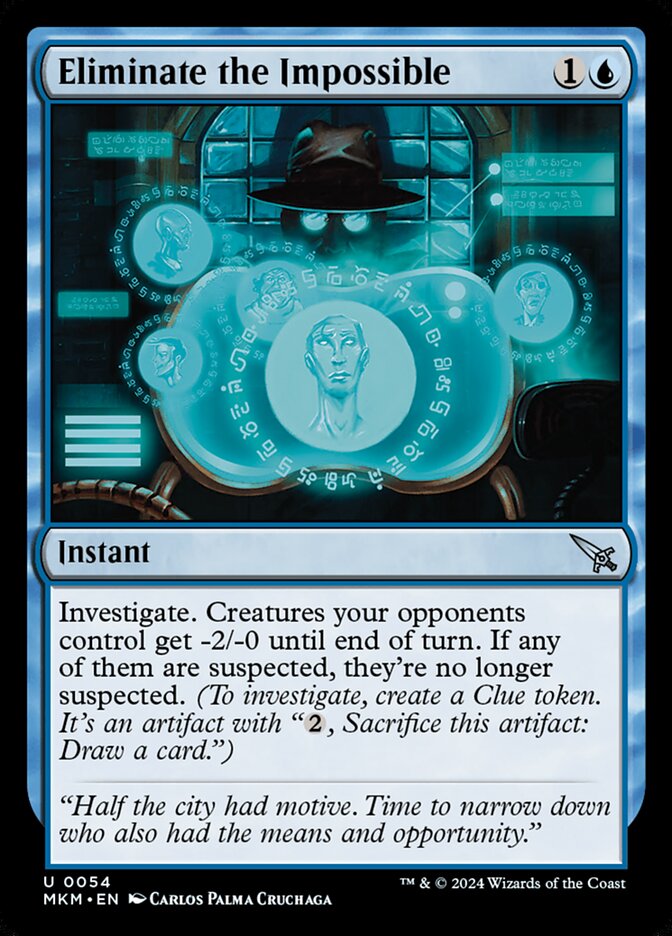
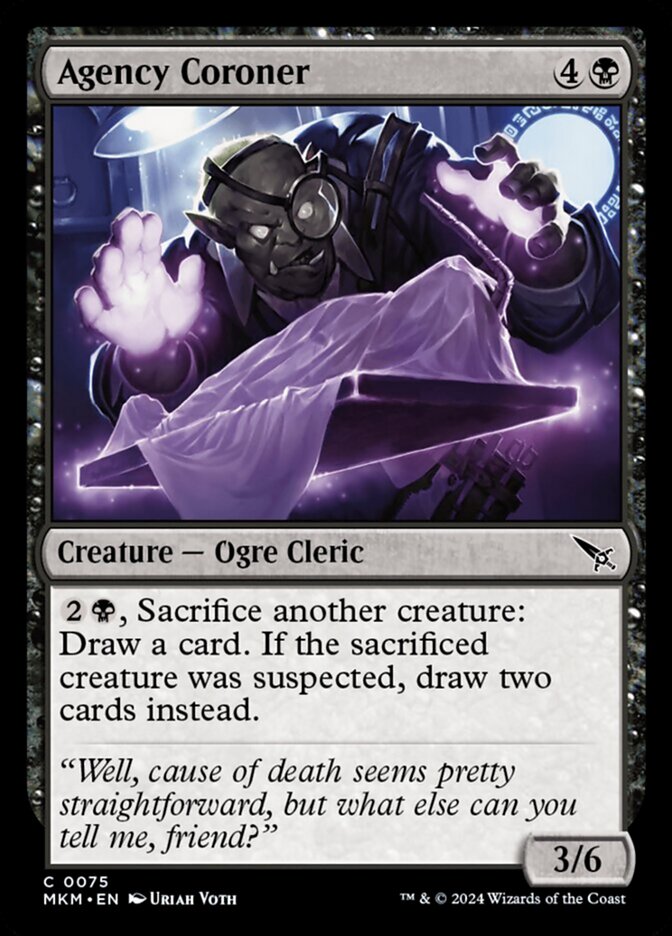
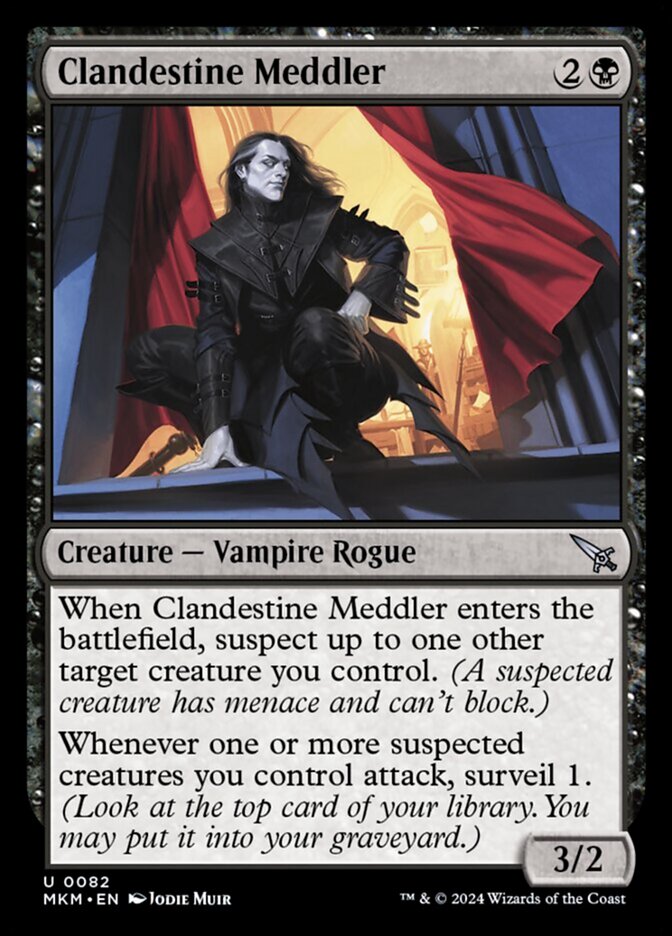
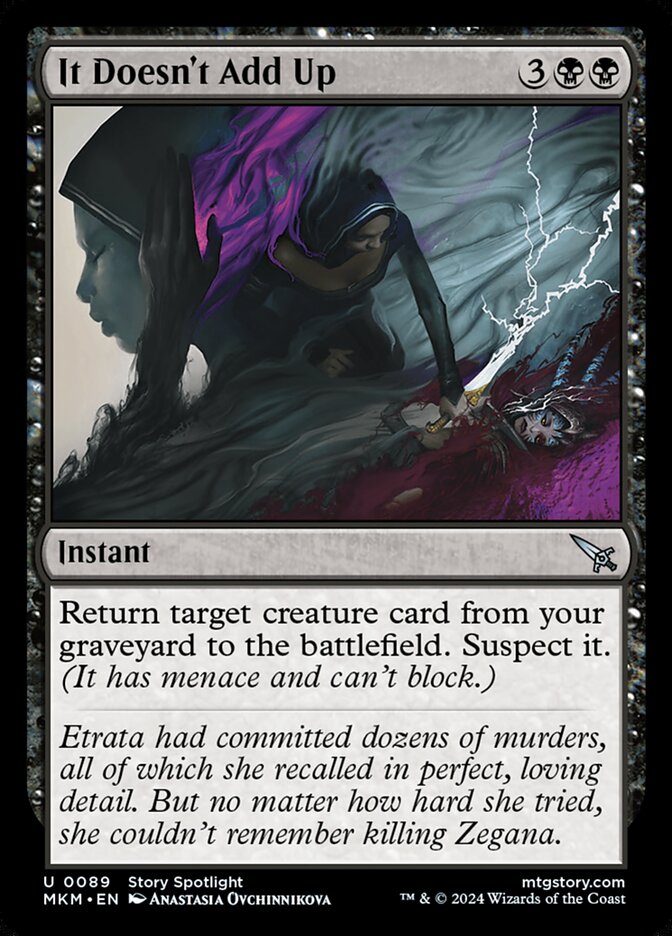
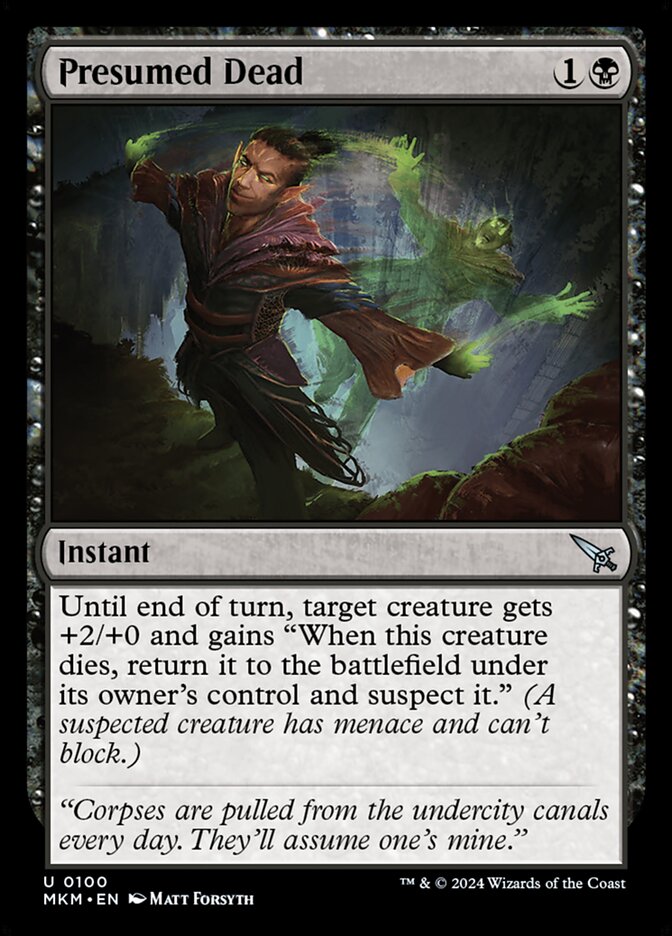
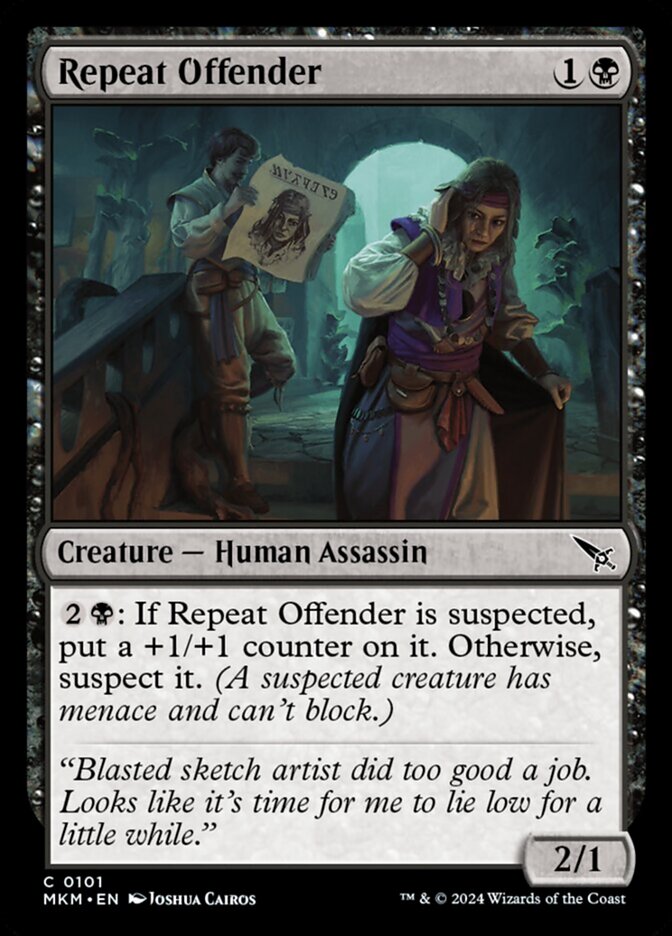
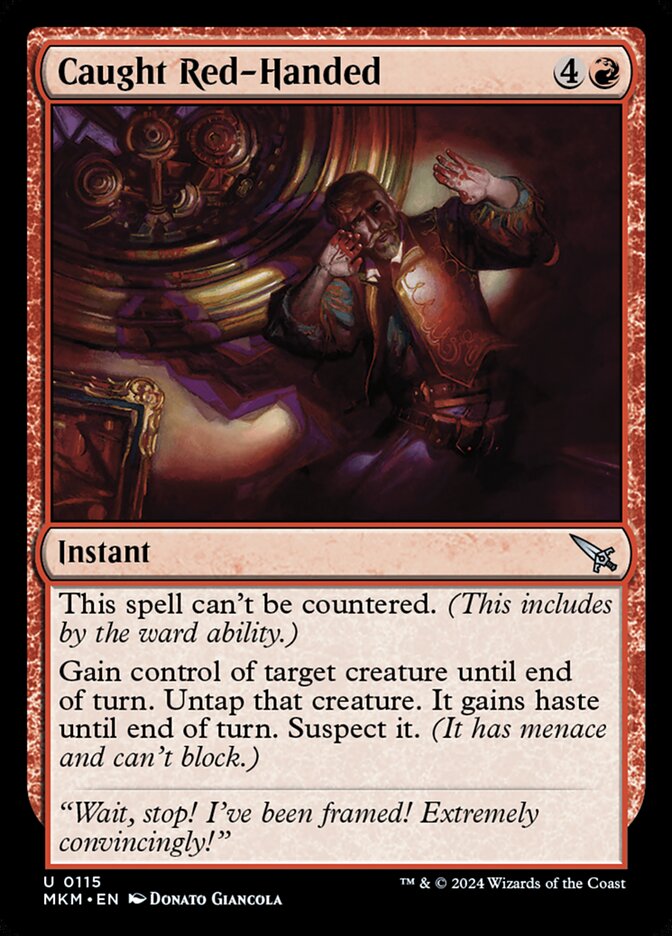
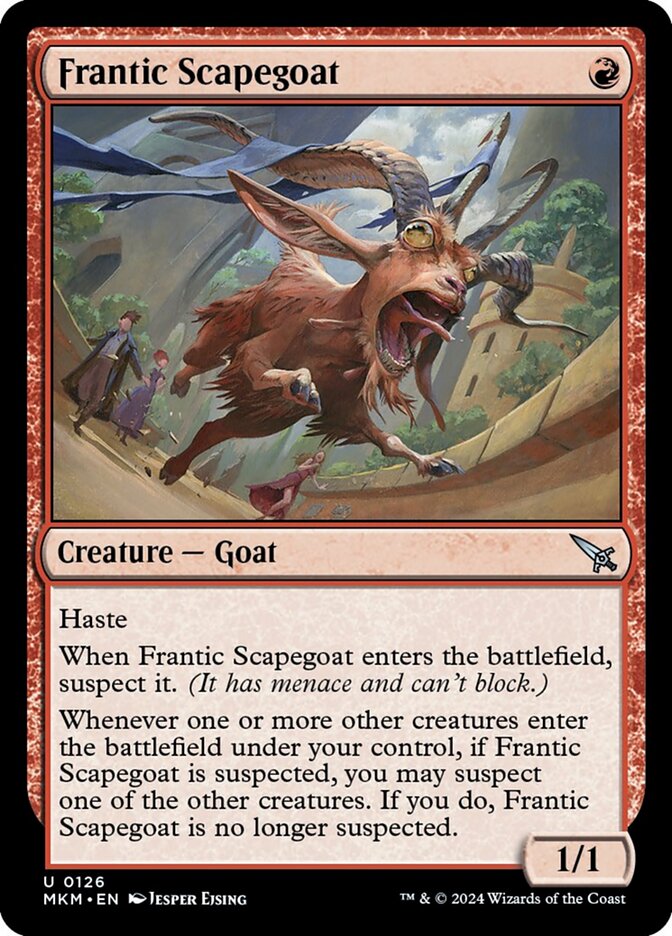
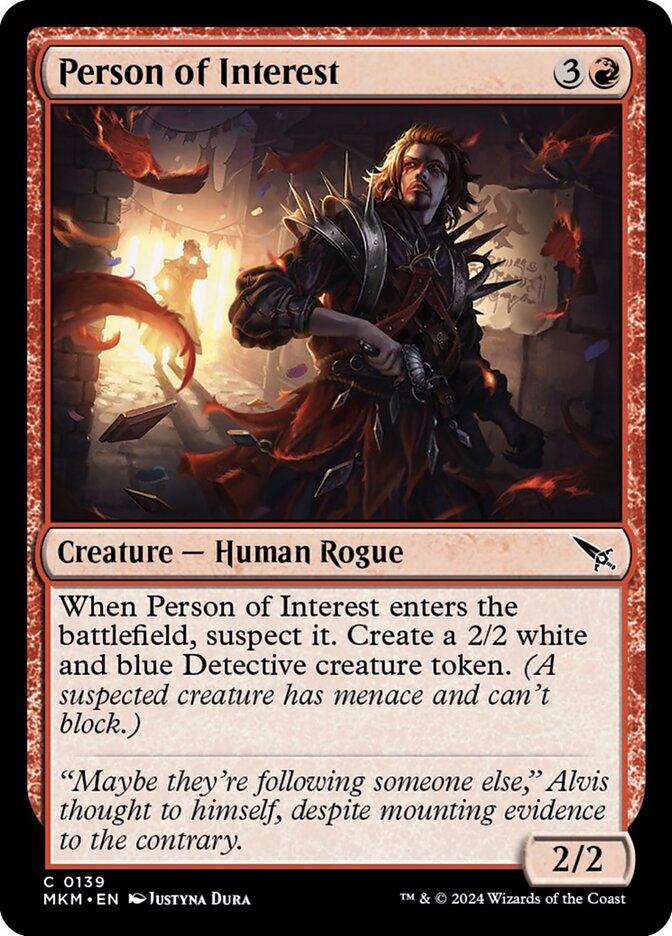
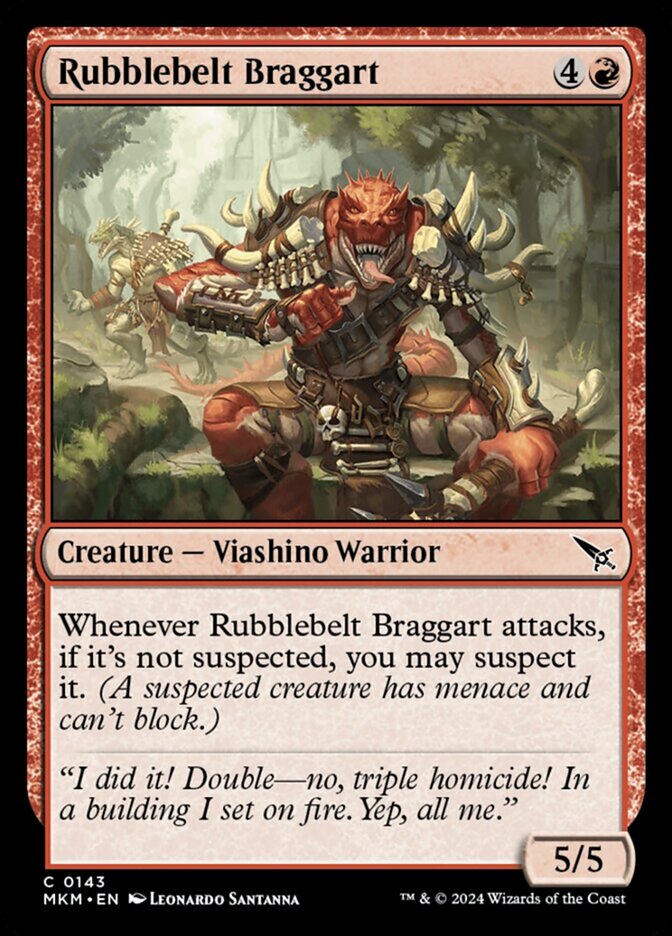
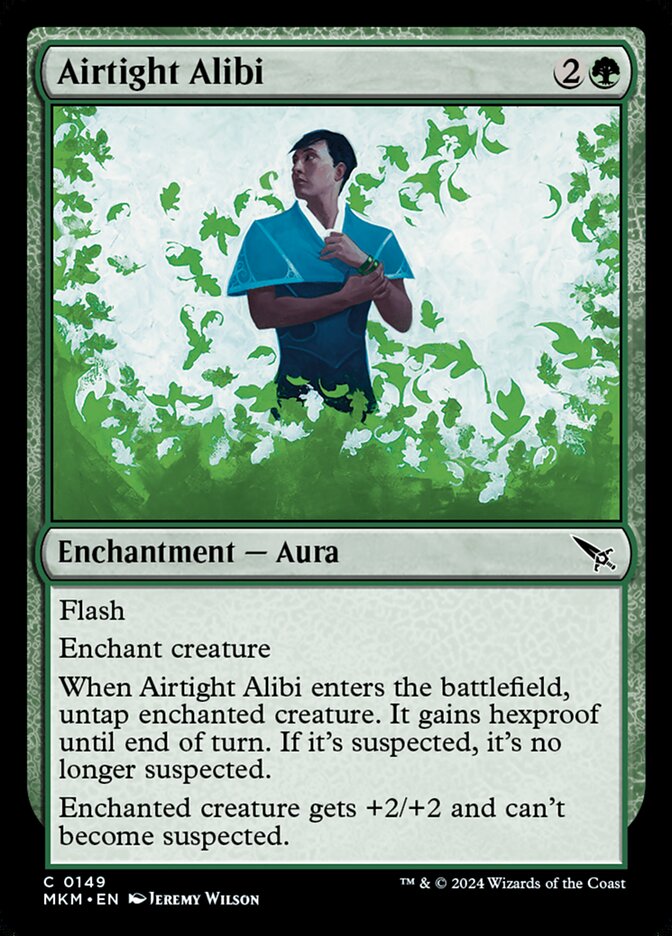
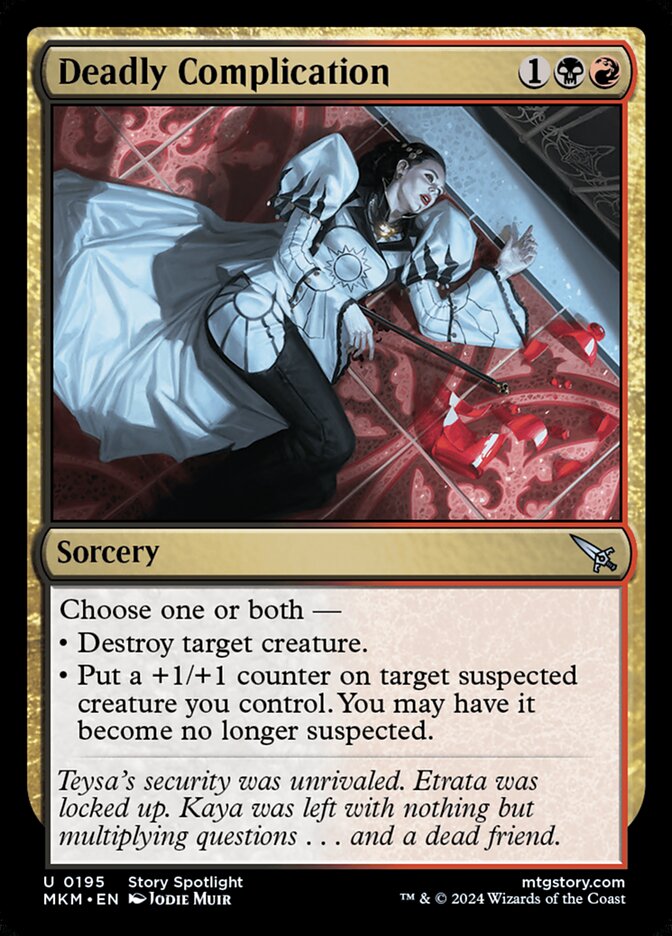
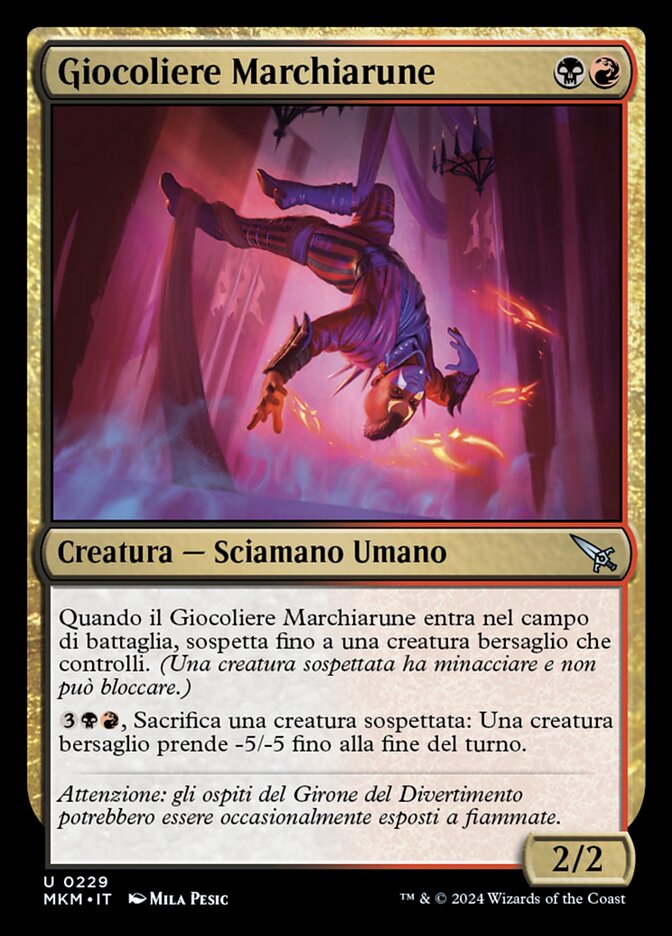
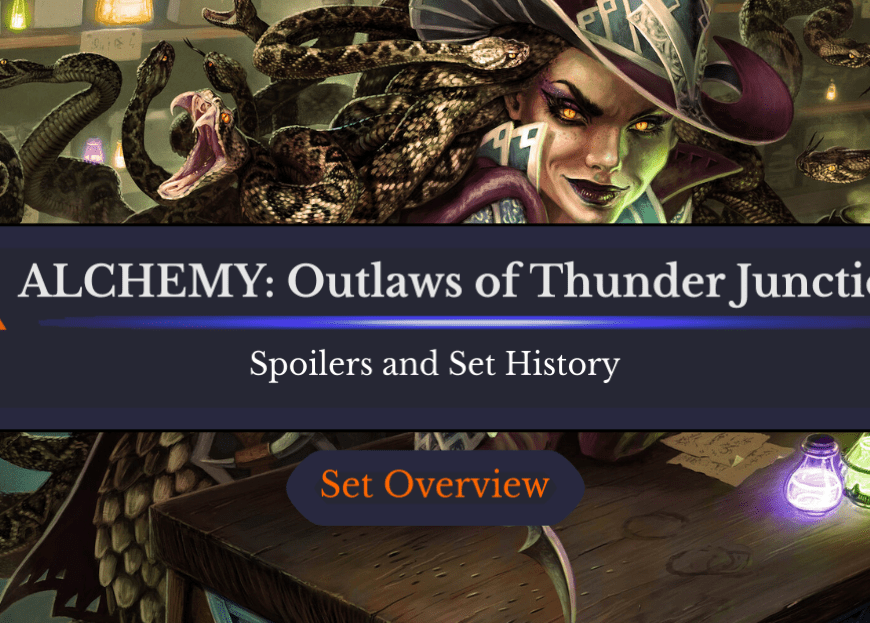
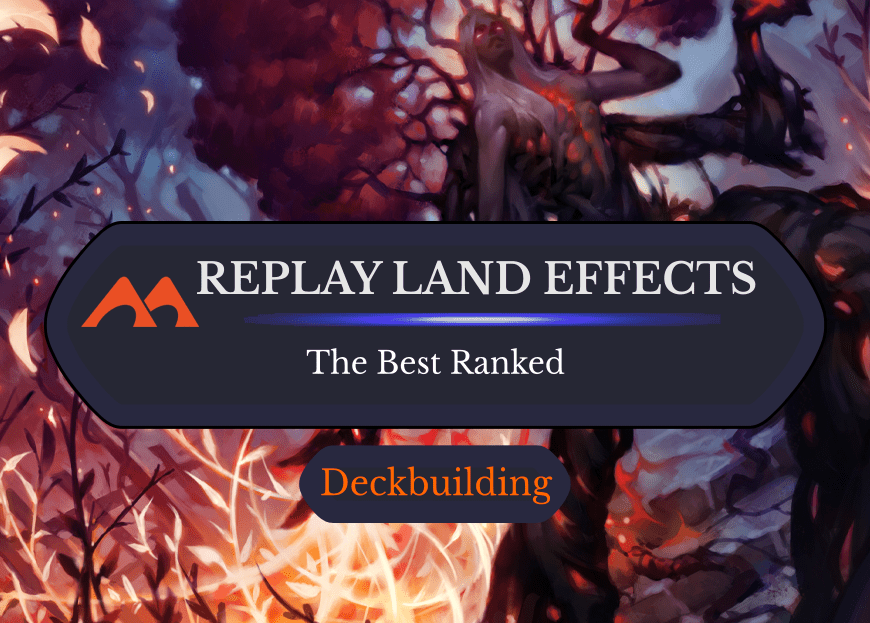
Add Comment